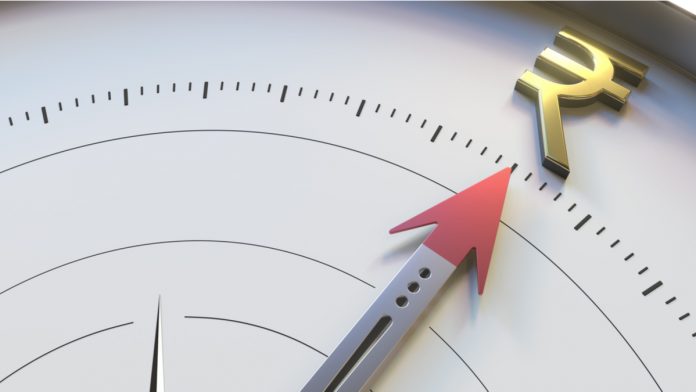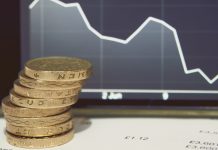GBP/INR has extended its decline on Tuesday morning, updating the lowest level since October last year. Currently, GBP/INR is trading at 90.403, down 0.40% as of 6:35 AM UTC. The price started to drop on March 9 and hasn’t found a bottom yet.
The Pound Sterling is under pressure as the COVID-19 disease is rapidly spreading in Europe. Elsewhere, the rupee is supported by positive news related to Yes Bank.
SBI Approves Bailout Package for Yes Bank
The stock price of Yes Bank, India’s fifth-largest private bank, surged more than 1,000% in seven sessions. Most of the gains came after the State Bank of India (SBI), along with eight other banks, agreed to help Yes Bank with a bailout package.
Previously, Yes Bank was seized by the Reserve Bank of India (RBI). Recently, the central bank assured all depositors that their funds were safe and there was no reason to withdraw en masse. After the RBI’s message and the private bank’s restructuring, rating agency Moody’s Investors Service improved its rating with a positive outlook.
Emkay Research said in a note to its investors:
“We believe that the current moratorium on deposit withdrawal and capital infusion are just a first step toward the revival of Yes Bank and thus avoid systemic risk for the entire financial sector and economy in current testing times.”
Separately, India’s commerce and industry ministry released wholesale inflation data, which cooled to 2.26% last month, after acceleration to 3.1% in January.
At the start of the year, India saw a sudden increase in inflation way above the RBI’s target, which prompted fears of stagflation, as the economy didn’t show signs of recovery. A correction in prices will allow the central bank to further cut the interest rate in an effort to support the economy, especially amid the coronavirus outbreak.
UK Economic Growth to Slow to 0.8% in 2020
As for the sterling, it is dragged down by increasing pessimism in Europe. The British Chambers of Commerce said earlier today that the growth in UK’s gross domestic product (GDP) would be the slowest since the financial crisis in 2008, as the COVID-19 effect would hurt major economies. The growth of the British economy will slow to 0.8% in 2020, down from previous forecasts of 1.0%.
Suren Thiru, head of economics at the BCC, commented:
“It is increasingly likely that the boost from higher government spending and more political certainty will be surpassed over the near-term by the negative impact of coronavirus on the UK economy.”





